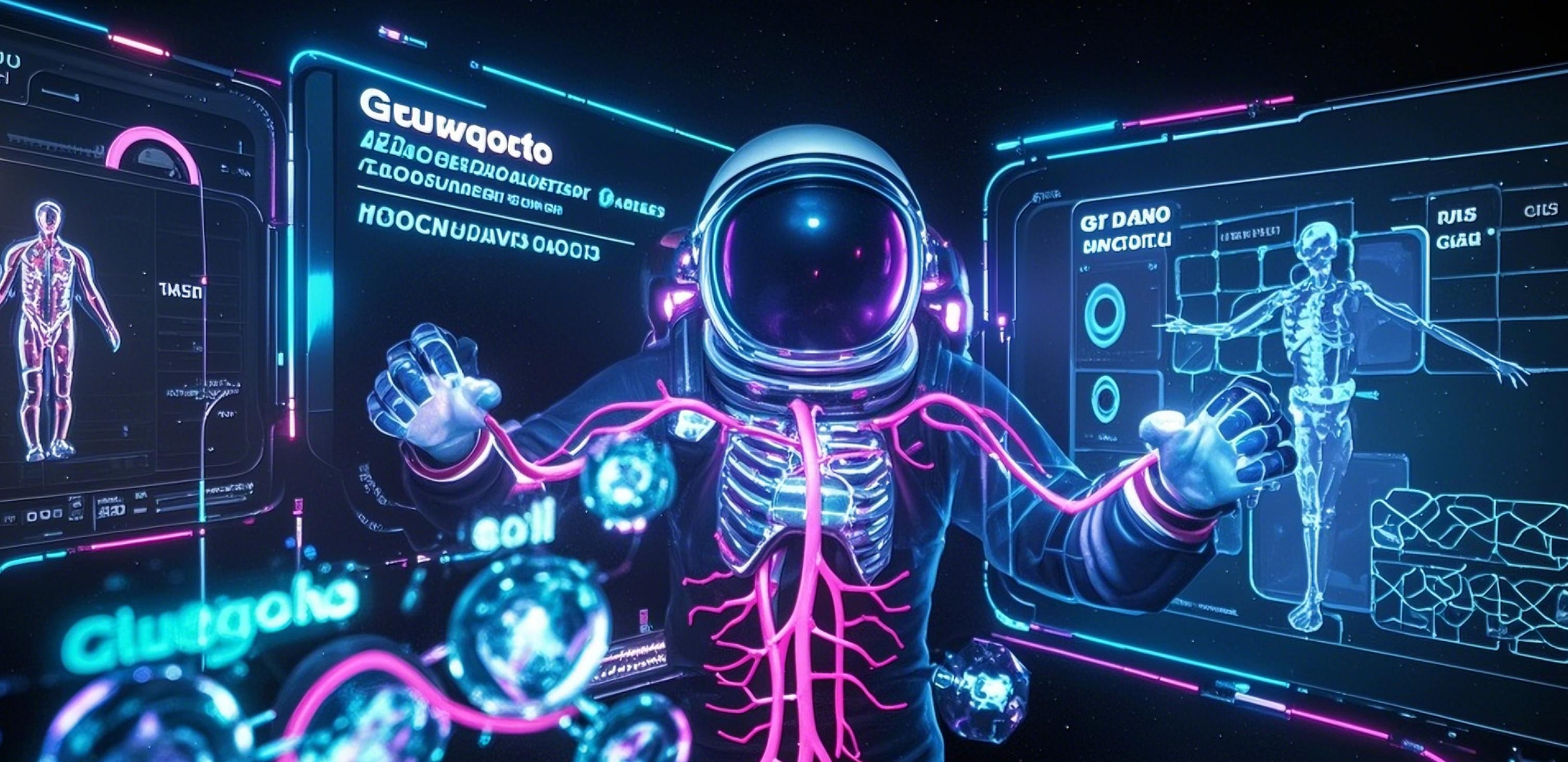Orbit Cipher
A decentralized science platform for space medical data, powered by blockchain technology
Core Value Proposition
Orbit Cipher combines blockchain security with scientific collaboration to revolutionize space medical research.
Technical Architecture
A comprehensive system designed for security, collaboration, and scientific advancement.
Hybrid Storage Architecture
- •Sensitive medical data stored in encrypted form on high-performance distributed storage
- •Only data metadata and access records stored on-chain
- •Data hash anchored to blockchain to ensure immutability
- •Implementation: Filecoin for distributed storage with IPFS addressing, Ethereum for data hash storage
Smart Access Control
- •Role-based permission management system
- •Granular data access control allowing astronauts to autonomously decide data sharing scope
DeSci Metrics and Success Criteria
Measuring impact and ensuring continuous improvement in decentralized space medicine research.
Impact Measurement Framework
Scientific Progress Metrics
- •Knowledge generation (publications, datasets)
- •Research acceleration (time-to-insight)
- •Collaboration density (cross-institutional connections)
Platform Health Indicators
- •Active researcher participation
- •Data contribution growth
- •Analysis tool utilization
- •Governance participation rates
Long-Term Value Creation
- •Translation to space mission improvements
- •Impact on astronaut health outcomes
- •Knowledge transfer to terrestrial applications

Space Hematology Research
Analyzing blood sample changes in microgravity conditions
Continuous Improvement
Evidence-Based Platform Evolution
- •Regular user feedback collection
- •Usage pattern analysis
- •Comparative benchmarking against traditional approaches
Adaptive Development
- •Quarterly platform assessment
- •Prioritized enhancement roadmap
- •Community-driven feature prioritization
Iterative Research Protocols
- •Methodology refinement based on outcomes
- •Cross-disciplinary review process
- •Transparent protocol versioning
DeSci Research Agenda
Focused research priorities to advance human health and performance in space.

Advanced Medical Diagnostics
Holographic visualization of physiological adaptations to space
Priority Research Areas
Space Radiation Effects
- •Cellular and genetic impacts
- •Countermeasure development
- •Long-term exposure modeling
Microgravity Adaptation
- •Musculoskeletal changes
- •Cardiovascular response
- •Neurovestibular adaptation
Isolation and Confinement
- •Psychological resilience factors
- •Team dynamics in space
- •Countermeasure effectiveness
Human Performance
- •Cognitive function in space
- •Work capacity assessment
- •Human-system integration
Methodological Innovations
Remote Health Monitoring
- •Non-invasive biomarker tracking
- •AI-assisted anomaly detection
- •Predictive health modeling
Distributed Clinical Trials
- •Protocol standardization
- •Remote consent management
- •Decentralized outcome assessment
Future Vision: Beyond Earth Orbit
Expanding decentralized science to support deep space exploration and interplanetary research.
Expansion to Deep Space Exploration
Mars Mission Preparation
- •Extended isolation studies
- •Radiation shielding assessment
- •Medical self-sufficiency protocols
Lunar Gateway Integration
- •Partial gravity adaptation research
- •Long-duration habitat health monitoring
- •Emergency response simulation

Sleep Science in Space
Monitoring neural activity during extended space missions
Ultimate DeSci Vision
Interplanetary Science Network
- •Autonomous research nodes beyond Earth
- •Delay-tolerant scientific collaboration
- •Resilient knowledge preservation across solar system
Human Space Exploration Enablement
- •Evidence-based risk reduction
- •Health maintenance optimization
- •Psychological support systems

Augmented Medical Visualization
Real-time physiological monitoring with blockchain verification
Implementation Roadmap
Our strategic plan to build and scale the Orbit Cipher platform.
Q2 2025
Proof of Concept & MVP
- Complete core storage and access control system development•Complete core storage and access control system development
- Establish initial collaboration with Fram2 mission team•Establish initial collaboration with Fram2 mission team
- Recruit 10-15 space medicine researchers for internal testing•Recruit 10-15 space medicine researchers for internal testing
Q3-Q4 2025
Basic Platform Launch
- •Support complete Fram2 mission medical datasets
- •Implement basic data analysis functionality
- •Establish initial user community (≥100 professional users)
2026
Feature Expansion & Adoption Growth
- Launch federated learning functionality•Launch federated learning functionality
- Implement initial community governance mechanisms•Implement initial community governance mechanisms
- Expand to other space mission data•Expand to other space mission data
- Reach ≥500 active users•Reach ≥500 active users
2027+
Complete Ecosystem
- •Refine DAO governance
- •Expand to Earth-based applications
- •Build developer ecosystem
- •Target ≥5,000 users
